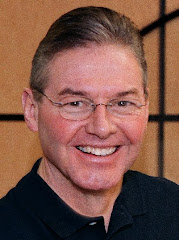You should know nothing good happens during a workout!
Working out stresses your body, tears it down, and leaves you measurably weaker when you leave the gym. Only during the recovery period following your workout do your muscles begin to rebuild stronger than before. Without enough time off you will actually become weaker, less fit, and prone to injury.
I had the pleasure of discussing this once with Dr. Dick Brown who coached numerous Olympic and World Champion runners. He saw how many top athletes hurt their performance by over training. These athletes are generally driven and tend to think more is always better. When they saw a dip in their performance they would put in more training time making the situation worse.
Dr. Brown’s program was 12 weeks of carefully planned training with the 13th week completely off! He said it was awful fighting with his athletes to take that week off.
You don’t have to be an elite athlete to suffer the effects of overtraining. If find you have less energy despite regular workouts, or even if you’ve hit a plateau and feel like you’re not progressing, these are classic signs of overtraining.
Remember, we’re here to help, so let a team member know if you have any concerns or questions so we can help you design a balanced approach to your exercise and recovery.
To the next 50 years!
Mike






Mike, can you tell me what "active recovery" is?
ReplyDeleteGeorge
George
ReplyDeleteActive recovery is the process of gradually slowing your heart rate down by slowing your exercise during a cool down period. A slow reduction in your heart is much better for you than a sudden stop, particularly when exercising at a high heart rate.
Some habitual exercisers use the term "active recovery" to rationalize doing "light" workouts on days off, when they should be resting to allow for full recovery. They "feel" they should exercise even when all the signs are telling them they need rest.
Since exercise is a science, our feelings can be very misleading.
Someone who is unfit for example will "feel" they should quit as soon as they start. Obviously this “feeling” is wrong! This also holds true for the regular exercisers who are so habitual about their exercise they are uncomfortable taking necessary recovery time off. Their "feelings" tell them to exercise even when they shouldn't. Again their “feelings” are wrong.
As I've said, exercise is a science, so if we want to be healthy and more fit we need to use logic and not our “feelings” to guide us.
Mike